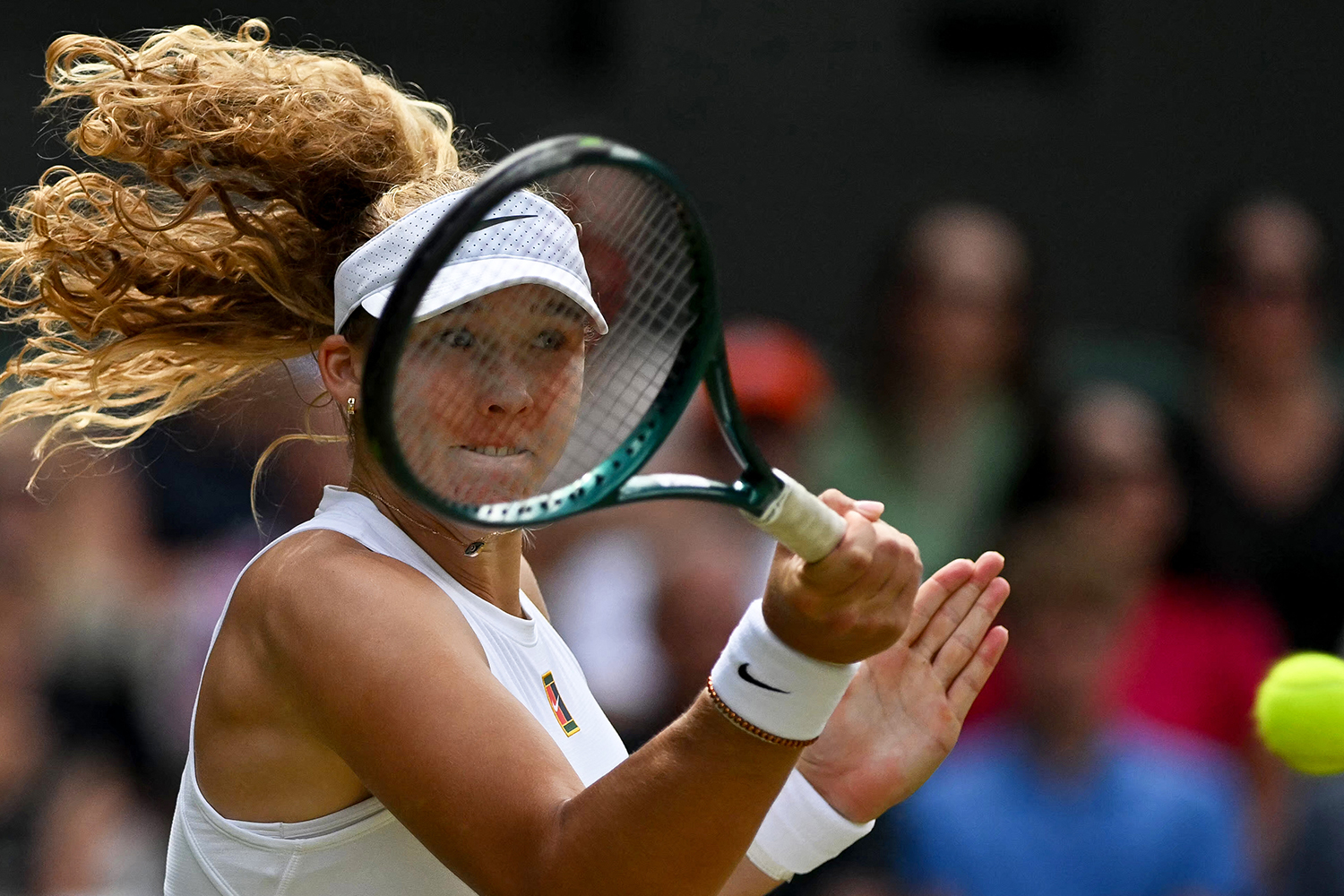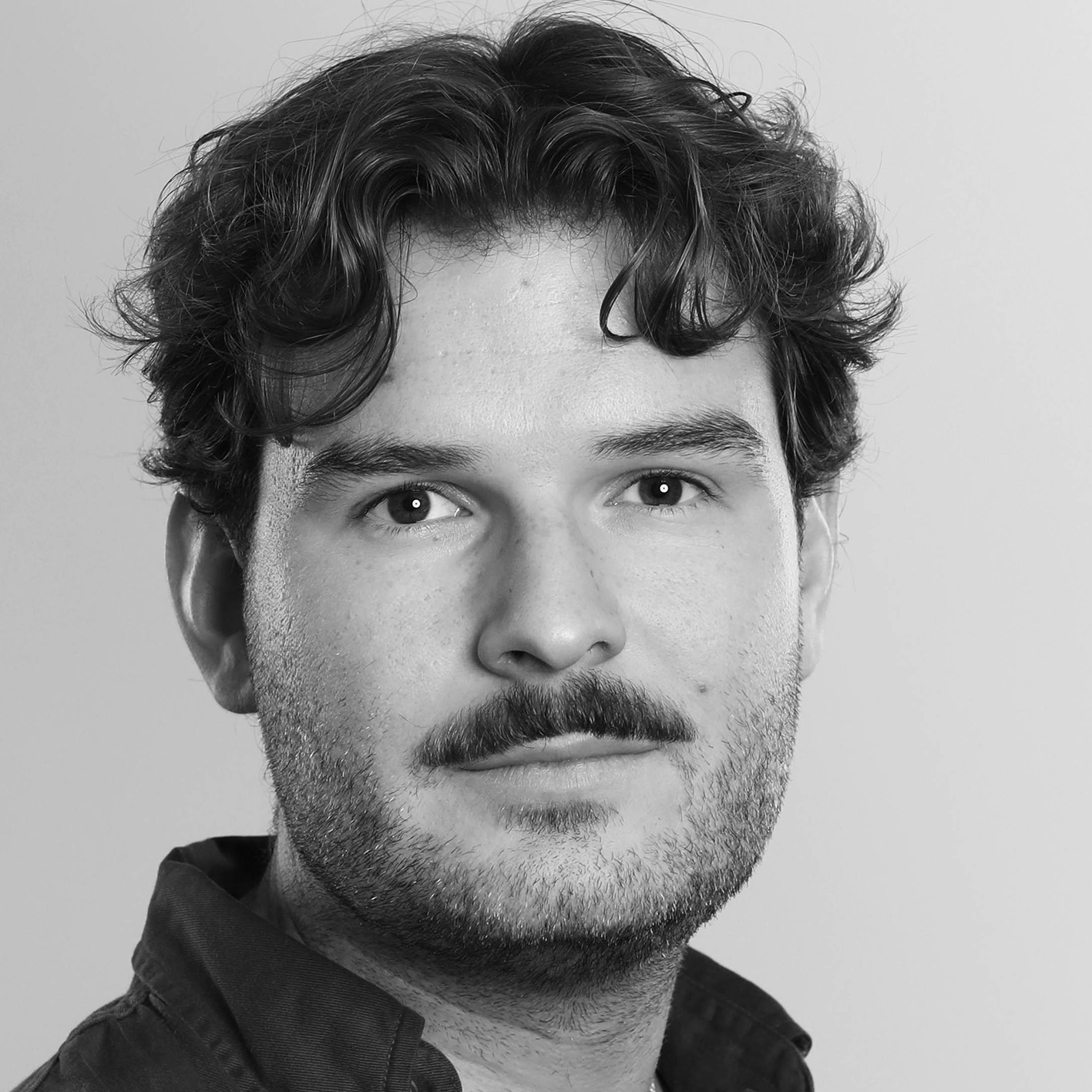According to Wimbledon’s website, its new darling really did come out of nowhere. Mirra Andreeva was born on 29 April 2007 in N/A, N/A, before settling in her current hometown of N/A. Maybe that explains the extra-terrestrial ability. It explains little else.
The All England Club loves a shiny new toy, and Andreeva is exactly that. She’s eminently lovable, infectiously positive and charming, as telegenic as she is talented. Unlike Aryna Sabalenka, she’s self-effacing without being self-flagellating. The seventh seed, this is her third Wimbledon but first quarter-final, exactly the same age as Maria Sharapova when she reached the last eight 20 years prior.
When her coach Conchita Martinez – the 1994 women’s singles champion – played mixed invitational doubles on Tuesday, Andreeva watched on in a straw boater adorned with Wimbledon-themed pins, holding up a handmade sign reading “Let’s Go! Señorita Topspin you are golden”. Female coaches in women’s tennis are rare enough, such open and heartening exchanges of support and love rarer still.
Given Andreeva won her first Tour match at 15, reached the semi-finals of the French Open last year at 17 and won silver in the 2024 Olympic doubles (representing Individual Neutral Athletes), she can appear a relative veteran - the Coco Gauff effect. A few days prior she was interviewed on the BBC alongside Martinez, saying she would love Roger Federer or Ryan Gosling to watch one of her matches. In her fourth-round win over Emma Navarro, she largely avoided looking up at the Royal Box. It was only midway through the second set she spotted Federer front and centre. Cue losing five consecutive points, before recovering to win (despite not realising she had, refocussing amid the celebrations). She still told Federer “it’s been one of my dreams to see you in real life” in her post-match interview and complimented his wife Mirka’s outfit. This is the good stuff.
And so as her blonde curls bobbed and weaved back onto Centre Court on Wednesday for her quarter-final against Belinda Bencic, adoration ensued. Wimbledon loves her, and it’s not hard to understand why. Despite only being 5ft 7, her serve tops 125mph. She compensates for a developing forehand with repeated forehand slices, and a relentlessly powerful and accurate backhand. Her agility and defensive game is as good as any of her peers.
Largely, crowds have followed Wimbledon’s lead in acknowledging her heritage. She was born in Krasnoyarsk, Russia, an aluminium-mining city on the Yenisey river. In 2023, Ukrainian Dayana Yastremska refused to shake Andreeva’s hand at the Prague Open, then posted a statement asking the WTA to sanction the then-16-year-old for liking supposedly pro-Putin Instagram posts.
Last year, human rights group Global Rights Compliance called for Andreeva to be stripped of her Olympic silver for “liking a post supporting Russia’s invasion of Ukraine and featuring Vladimir Putin making jokes about Ukrainian President Zelenskyy’s future funeral”.
There is obvious mitigation if you choose to accept it - she was 15 and 16 at the time of the posts and still based in Russia. After her straight-sets defeat to Bencic, The Observer asked Andreeva to clarify her position on Russia’s ongoing invasion of Ukraine. She replied: “I’m pro peace”, but did not comment further. In reply to a separate question, she said: “When I play tennis, all of us tennis players, when we play we don’t really think about what’s going on, we just try to focus on how to improve our game and win a match. For me, I just try to think about tennis and enjoy my life overall.” It’s alright for some.
At no point has she openly criticised Putin or her homeland, although it bears saying her regular practice partner is Daria Kasatkina, the Russian-born Australian No 18 who renounced her citizenship over anti-LGBT+ laws and the invasion. Fellow quarter-finalist Anastasia Pavlyuchenkova has also said of the invasion: “personal ambitions or political motives cannot justify violence”.
Pavyluchenkova and Andreeva were two of four Russian or Belarussian quarter-finalists in the women’s singles, with Karen Khachanov in the men’s final eight. For Wimbledon, as for every slam, the policy of permitting participation under a neutral flag remains an awkward if socially acceptable equivocation. The vast majority appear comfortable continuing as is, ignoring the obvious issue just as they attempt to ignore the conflict, the unspeakable suffering, the death and decay of a nation and its people. The question of her allegiance will hang over Andreeva until she provides a straight answer. No amount of charm or enviable youth should alter that.
Newsletters
Choose the newsletters you want to receive
View more
For information about how The Observer protects your data, read our Privacy Policy
And so perhaps the positivity and support should really have been for Bencic, ruthlessly effective in allowing Andreeva to largely beat herself – 30 winners and 31 unforced errors attests to that. The Swiss world No 35 and Tokyo gold medallist had a daughter, Bella, in April 2024, slipping to almost 500th in the rankings. She now plays Iga Swiatek tomorrow for a place in the Wimbledon final, her joint-best grand slam performance. There’s your new darling.
Photo: Glyn Kirk/AFP via Getty Images

